Noticing signs of a sick dog is very important for keeping your pet healthy. Dogs can’t tell us when they feel bad, so it’s up to us to spot the signs. Common signs of a sick dog include changes in how much they eat, unusual behavior, and symptoms like vomiting or coughing. By learning to recognize these signs, you can quickly get help from a vet and make sure your dog stays well. Early action can help your pet get better faster.
Common Symptoms of a Sick Dog
Changes in Appetite
As a dog owner, you know your furry friend’s eating habits well. So, it’s natural to worry if your pup suddenly starts eating more than usual or barely touches their food. Changes in appetite can signal different health issues but don’t worry—most of them are treatable. Let’s look at what might be causing your dog’s change in appetite and when you should take them to the vet.

Why is My Dog Eating Less?
There are several reasons why your dog might not be as interested in food:
- Upset Stomach: Eating something bad or having a simple infection can make your dog feel less hungry.
- Dental Pain: Chewing can be painful if your dog has problems like broken teeth or gum disease.
- Feeling Sick: Just like people, dogs might not want to eat when they don’t feel well. This could be due to a fever, infection, or even stress.
- Getting Older: As dogs age, their metabolism slows down, leading to a reduced need for food.
Why is My Dog Eating More?
If your dog suddenly seems hungry all the time, it could be because of:
- Growing: Puppies and young dogs need more calories to support their growing bodies.
- Active Lifestyle: Dogs who exercise a lot burn more energy and need extra food to keep up.
- Diabetes: This condition can make dogs feel hungrier and thirstier than usual.
- Intestinal Parasites: These unwanted visitors take nutrients from your dog’s food, leaving them feeling constantly hungry.
What Should You Do?
If your dog’s appetite changes for just a day or two, it’s typically not a cause for concern. But if they keep eating too little or too much for several days, it’s a good idea to visit the vet. The vet will check your dog and ask questions about their health, activity, and any recent changes in their diet. This will help them figure out what’s causing the appetite change and how to treat it.
Behavioral Changes: Understanding Lethargy, Hiding, and Aggression
Dogs communicate a lot through their actions. So, when your usually playful pup becomes lethargic, starts hiding, or shows aggression, it’s natural to be concerned. Let’s look at what these behavior changes might mean and how you can help your dog.
Lethargy
If your dog, who is usually full of energy, suddenly becomes a couch potato, it could be due to:
- Pain: Discomfort from injuries, arthritis, or other issues can make moving around less fun.
- Illness: Infections, fever, or even depression can drain your dog’s energy.
- Health Problems: Lethargy can sometimes be an early sign of organ issues.
Hiding
If your dog is hiding in dark places or under the bed more than usual, it might be because:
- Fear: Loud noises, new people, or a change in routine can make some dogs anxious, causing them to hide.
- Pain: If your dog is hurt, they might hide to feel safe and avoid more pain.
- Feeling Unwell: Dogs who don’t feel good might want to be alone.
Aggression
If your normally friendly dog starts snapping or growling, it might be due to:
- Pain: Just like people, dogs might lash out when they’re in pain and feel threatened.
- Fear: Feeling scared or trapped can cause some dogs to become aggressive as a way to protect themselves.
- Health Issues: Sometimes, aggression can be a sign of neurological or other medical conditions.
What Should You Do?
If your dog shows any of these behavior changes for more than a day or two, it’s important to talk to your vet. They can check for any underlying health problems and suggest the best way to help your dog.
Bathroom Troubles: Diarrhea, Constipation, and Frequent Urination
Our dogs depend on us to keep them healthy and happy, and that includes paying attention to their bathroom habits. Changes in your dog’s potty routine, like messy accidents, straining to go, or peeing more often, can be signs of something going on inside. Let’s explore what these changes might mean and how you can help your furry friend.

Doggy Diarrhea
Diarrhea, which means loose, watery stools, can happen for several reasons:
- Diet Troubles: Is your dog having diet troubles after eating something they shouldn’t have? Eating the wrong thing is a common cause of diarrhea.
- Food Allergies: Just like us, dogs can have food allergies that upset their stomach.
- Parasites: Intestinal parasites can irritate your dog’s gut and lead to diarrhea.
- Bacterial Infections: Bacteria can cause diarrhea, often along with other symptoms like vomiting.
- Bowel Problems: Inflammatory bowel disease (IBD) is a chronic condition that can lead to ongoing episodes of diarrhea.
Dog Constipation
Constipation, where your dog has trouble passing stool, can be uncomfortable. Here are some possible causes:
- Dehydration: Make sure your dog always has fresh water to drink.
- Low Fiber: A diet low in fiber can make it harder for your dog to poop.
- Blockages: Something blocking the intestines, like a foreign object, can prevent normal bowel movements.
- Metabolic Issues: Sometimes, constipation can be a sign of underlying health problems.
Frequent Urination in Dogs
If your dog is peeing more often than usual, here are some possible reasons:
- Diabetes: Increased thirst and peeing can be a sign of diabetes.
- Kidney Problems: Issues with the kidneys can cause your dog to pee more frequently.
- Urinary Tract Infections (UTIs): UTIs can irritate the bladder, making your dog pee more often, sometimes with discomfort.
- Drinking More Water: Some dogs simply drink more water, which leads to more urination.
What Should You Do?
If your dog has any of these bathroom problems for more than a day or two, it’s important to visit the vet. Early diagnosis and treatment can make a big difference in keeping your dog healthy.
Understanding Vomiting, Coughing, and Discharge
Our dogs can’t always tell us when they’re sick, but symptoms like vomiting, coughing, and unusual discharge can be signs that something’s wrong. Let’s look at what these symptoms might mean and how you can help your dog.
 Vomiting
Vomiting
Vomiting, when your dog forcefully throws up stomach contents, can happen for several reasons:
- Diet Issues: Did your dog eat something they shouldn’t have? Eating the wrong thing is a common reason for vomiting.
- Parasites: Intestinal parasites can upset your dog’s stomach and cause vomiting.
- Food Allergies: Some dogs might vomit if they have a food allergy.
- Pancreatitis: Inflammation of the pancreas, an organ that helps with digestion, can cause vomiting.
- Stomach Problems: Vomiting can also be a sign of other gastrointestinal issues.
Hacking Cough
A persistent cough shouldn’t be ignored. Here are some possible causes:
- Respiratory Infections: Infections like kennel cough or bronchitis can irritate your dog’s airways, leading to coughing.
- Heart Problems: In some cases, a cough can be a sign of heart disease.
- Kennel Cough: This highly contagious infection is common in places where dogs gather, like kennels.
Eye and Nose Discharge
If your dog has goopy eyes or a runny nose, it could be due to:
- Allergies: Allergies to pollen or dust can lead to eye or nose discharge.
- Eye Infections: Bacterial or viral infections can cause redness, irritation, and discharge from the eyes.
- Respiratory Infections: Upper respiratory infections can lead to a runny nose.
What Should You Do?
If your dog has any of these symptoms, especially if they last a while or come with other signs of illness, it’s important to visit the vet. Detecting and treating your dog’s condition early can lead to a quicker recovery.
Subtle Signs Your Dog Might Be Feeling Sick
Dogs are good at showing how they feel, but sometimes their signs are more subtle. Small changes in their behavior, which we might overlook, can be early signs that something’s wrong. Let’s look at these subtle clues and what they might mean for your dog.
Loss of Interest in Activities
If your usually lively dog starts skipping playtime or dragging their leash on walks, it might mean:
- Pain: Injuries, arthritis, or other issues could make playing less fun.
- Feeling Tired: Conditions like anemia or even depression can make your dog feel tired.
- Joint Pain: Pain or stiffness in their joints might make exercise uncomfortable.
Changes in Sleep Patterns
If your dog’s sleeping patterns shift, it could indicate:
- Too Much Sleep: Excessive sleepiness might indicate pain, discomfort, or neurological problems.
- Restless Nights: Trouble sleeping could mean anxiety, pain, or digestive issues.
Preference for Solitude
If your usually social dog starts spending more time alone, it might be because:
- Feeling Unwell: Dogs who aren’t feeling good might want to be alone.
- Stress: Changes in their routine, new pets, or loud noises can make some dogs anxious, leading them to isolate themselves.
What Should You Do?
These small changes might seem minor, but they could be early signs of health problems. If you notice any of these behaviors lasting several days, it’s a good idea to take your dog to the vet. Early detection and treatment can help your dog feel better faster.
Is Your Dog’s Coat Looking a Little Off?
A healthy coat is a sign that your dog is healthy. But if your dog’s fur starts looking dull, they’re scratching a lot, or losing patches of hair, it’s time to check it out. Let’s look at some common skin and coat issues and what they might mean.
Dull Coat: Lost Its Shine?
A coat that looks dull can be a sign of:
- Poor Diet: Not getting the right nutrients can make your dog’s coat look lackluster.
- Allergies: Allergies to things in their environment or food can change the look of their coat.
- Hormonal Issues: Problems with the thyroid or other hormones can affect your dog’s coat.
Itchy Skin: Constant Scratching
If your dog is scratching a lot, they’re probably uncomfortable. Possible reasons include:
- Fleas and Ticks: These pests can cause itching.
- Allergies: Allergies to food or the environment can make your dog’s skin itchy.
- Infections: Bacterial or fungal infections can lead to irritation and itching.
Hair Loss
If your dog is losing patches of hair, it might be due to:
- Allergies: Allergies can cause hair loss in specific areas.
- Hormonal Problems: Hormonal imbalances, including thyroid issues, can lead to hair loss.
- Infections: Infections can damage the hair follicles and cause hair loss.
What Should You Do?
If you see any changes in your dog’s skin or coat, it’s important to see your vet. They can find out what’s causing the issue and suggest the best treatment.
Recognizing Urgent Signs
Seeing your dog unwell can be very worrying. Sometimes, your pup needs immediate medical help. Here’s a guide to help you identify urgent signs that require a visit to the emergency vet.
Emergency Signs in Dogs
These signs mean you should get your dog to the vet right away:
- Trouble Breathing: If your dog is breathing very fast, shallow, or gasping, it’s an emergency.
- Severe Vomiting and Diarrhea: If your dog has constant vomiting or diarrhea, especially with blood, it can cause dehydration and other serious problems.
- Seizures: Seizures can be a sign of a serious issue and need immediate attention.
- Sudden Collapse: If your dog suddenly collapses or faints, it’s a critical situation that needs urgent care.
- Severe Lameness: If your dog is limping badly or can’t use a leg, it might be a broken bone or other serious injury.
- Blood in Urine or Stool: Blood in your dog’s pee or poop can be a sign of internal bleeding and needs immediate vet care.
- Unconsciousness: If your dog is unconscious or unresponsive, it’s a life-threatening situation. Take them to the vet immediately.
When to Monitor and When to Act
Dogs can’t always tell us what’s wrong, but watching their behavior and habits can help you know when something might be wrong. This guide will help you figure out when to just keep an eye on minor changes and when to take your dog to the vet.
Minor Issues
It’s normal for dogs to have occasional changes. Here’s when you can watch them for a little while:
- Picky Eater: If your dog skips a meal or eats less for a day or two, it might not be a big deal.
- Off Day: If your dog is less playful or seems tired for a day, it could just be a minor tummy ache or fatigue.
- Upset Stomach: One-time vomiting or diarrhea can happen, especially if they ate something they shouldn’t have.
- Itchy Patch: A small skin irritation might go away on its own.
When to Take Action: See the Vet
If these issues keep happening or get worse, it’s time to go to the vet:
- Ongoing Issues: If your dog keeps losing its appetite, is lethargic, or has frequent vomiting/diarrhea for several days, get it checked by a vet.
- New Symptoms: If your dog starts showing new symptoms like coughing, fever, or trouble walking, take them to the vet.
- Gut Feeling: Even if symptoms seem mild, trust your instincts. If you’re worried about your dog’s health, it’s better to be safe and make a vet appointment.
Keeping a Health Diary for Your Dog
Just like you track your own health, keeping an eye on your dog’s well-being is important. A health diary can help you detect issues early and ensure your furry friend stays happy and healthy. Here’s how to use this simple tool.
What to Record in Your Health Diary
Think of your health diary as a logbook for your dog’s life. Here’s what to include:
- Daily Observations: Note your dog’s appetite, energy levels, bathroom habits (how often and the consistency), and any strange behaviors like excessive licking, hiding, or whining.
- Medication and Diet: Write down any medications your dog is taking, including the dosage and how often. Record any changes in their diet, like new treats or food brands.
- Incidents and Accidents: If your dog gets into something they shouldn’t have, jot it down. This can help connect past incidents to any new symptoms that come up.
Why is a Health Diary Important?
Keeping a health diary has several benefits:
- Early Warning: Tracking changes helps you spot problems before they get worse.
- Better Vet Visits: A detailed diary helps your vet understand your dog’s health and provides useful information for diagnosis and treatment.
- Peace of Mind: Monitoring your dog’s health closely can give you confidence and peace of mind as a pet owner.
Keeping Your Dog Healthy
Just like people, dogs need regular care to stay happy and healthy throughout their lives. Think of it as building a strong base for your dog’s well-being. Here’s what you should know about keeping your dog healthy with preventive care:
Your Dog’s Medical Check-Ups
Regular trips to the vet are important. These visits help your vet spot any problems early before they become serious. Vaccinations also help keep your dog safe from diseases that can be prevented.
Keeping Your Dog Fit
Dogs need a good diet to stay healthy. Ask your vet to help you pick the right food based on your dog’s age, breed, and activity level. Exercise is also important for keeping your dog’s body and mind in good shape.
Keeping Your Dog’s Teeth Healthy
Brushing your dog’s teeth and regular dental cleanings are important for preventing dental problems. Healthy teeth and gums are crucial for your dog’s overall health.
Parasite Prevention
Fleas, ticks, and worms can make your dog uncomfortable and even spread diseases. Talk to your vet about year-round products to keep these parasites away.
Spaying & Neutering
Spaying or neutering your dog has health benefits, such as lowering the risk of certain cancers and preventing unwanted puppies. Talk to your vet to figure out the best option for your dog.
Investing in Prevention
Preventive care might seem like an extra cost, but it’s a smart investment in your dog’s long-term health and happiness. By taking these steps, you can help your dog live a longer and healthier life.
When Your Dog Isn’t Feeling Well
Seeing your dog sick can be tough, but you can help them feel better by providing comfort and following your vet’s advice. Here’s how to care for your dog during this time:
Making Your Dog Comfortable
- Familiar Place: Create a serene and cozy space with their favorite bedding and toys.
- Easy Access: Keep their food, water, and resting area within easy reach.
- Soft Lighting: If your dog seems sensitive to light, use dim or soft lighting.
Following Vet Instructions
- Stick to the Plan: Give medications exactly as your vet prescribed, even if your dog seems better.
- Pill Pockets: Ask your vet about using special treats to make taking medicine easier.
- Watch and Report: Notice how your dog reacts to the medication and tell your vet if you see any problems.
Hydration and Simple Diet
- Fresh Water: Ensure your dog always has access to clean, fresh water. Staying hydrated is important.
- Simple Food: If your vet suggests a bland diet, like boiled chicken and rice, offer small amounts to help with their appetite and avoid an upset stomach.
Providing Emotional Support
- Gentle Touch: Offer calm cuddles and soft petting if your dog likes it.
- Soothing Voice: Talk to your dog in a calm and reassuring way.
- Routine: Keep their regular routine as much as possible, but be flexible if they need extra rest.
Taking Care of Yourself
- Get Help: If you can, ask family or friends to help with walks, feeding, or giving medicine.
- Take Breaks: It’s okay to take breaks for yourself. You’ll be better able to care for your dog if you’re rested.
- Seek Support: Talk to your vet, a pet sitter, or a friend if you need advice or help.
Conclusion
Noticing the signs of a sick dog is really important for keeping your pet healthy. By watching for changes in their behavior, appetite, or physical condition, you can catch problems early. If you see any worrisome symptoms, like severe vomiting, trouble breathing, or unusual behavior, it’s best to reach out to your vet right away. Acting quickly can help your dog get the right treatment and feel better faster. Stay observant and don’t hesitate to get help—your dog’s well-being depends on it.
FAQ’s
What are common signs of a sick dog?
Common signs of a sick dog include changes in appetite, such as eating much more or less than usual, and behavioral changes like unusual lethargy or aggression. Physical symptoms such as vomiting, coughing, or abnormal discharge from the eyes or nose can also indicate illness.
How can I determine if my dog’s symptoms are serious?
If your dog shows signs of severe vomiting, difficulty breathing, or sudden collapse, these are critical symptoms that require immediate veterinary attention. For less urgent symptoms, like mild changes in energy or appetite, keep an eye on them for 24 to 48 hours. If the symptoms don’t improve or get worse, it’s time to consult your vet.
How does age affect the signs of a sick dog?
Age can influence how symptoms of illness present in dogs. Older dogs may show signs of age-related conditions like arthritis or kidney disease, which might cause gradual changes in their behavior or physical condition. Younger dogs might show more acute symptoms if they are unwell.
What should I do if my dog shows subtle signs of illness?
Subtle signs, such as slight changes in energy levels or minor skin issues like dull fur or increased itching, can still indicate health problems. Track these changes in a health diary and monitor your dog closely. If you notice these signs persisting or worsening, consult with your vet to get a professional opinion.
How can I manage the emotional impact of caring for a sick dog?
Taking care of a sick dog can be emotionally tough. It’s important to take care of your own well-being as well. Seek support from friends, family, or pet owner support groups, and don’t hesitate to take breaks when needed. Managing your stress helps you stay strong for your dog and better handle their care.

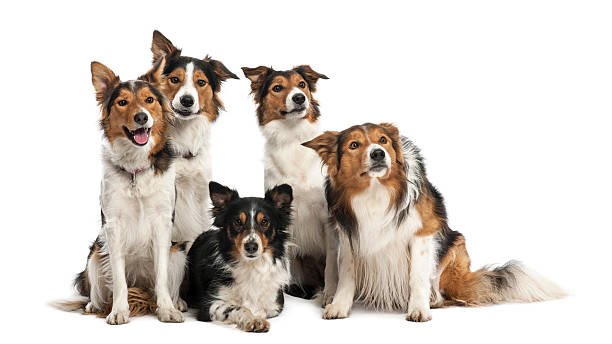


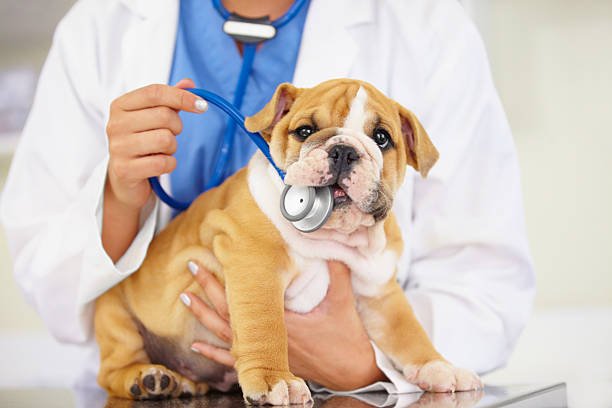







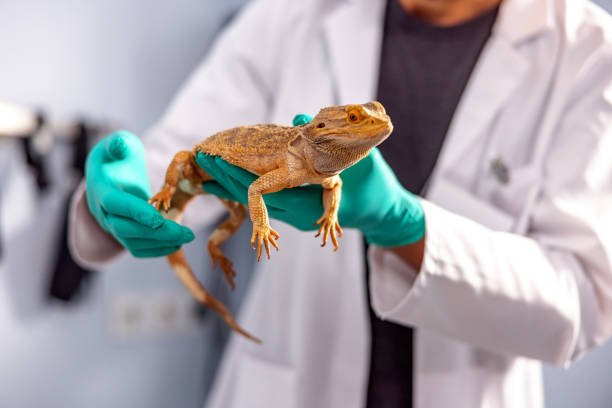

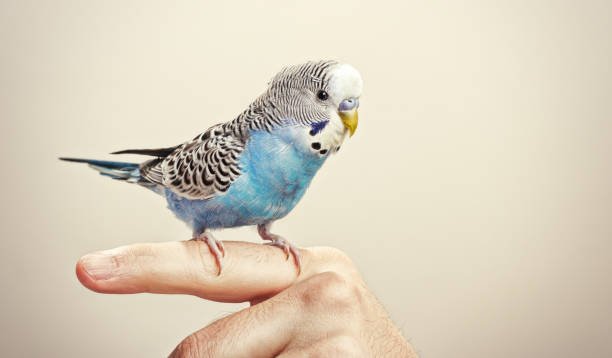


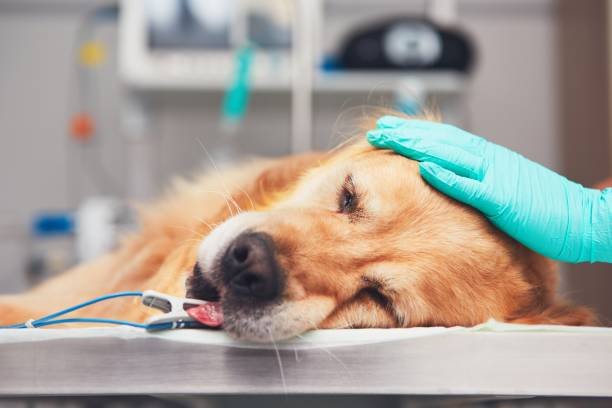


 Vomiting
Vomiting


